Our Partners & Collaboration
CONCRETE EUROPE
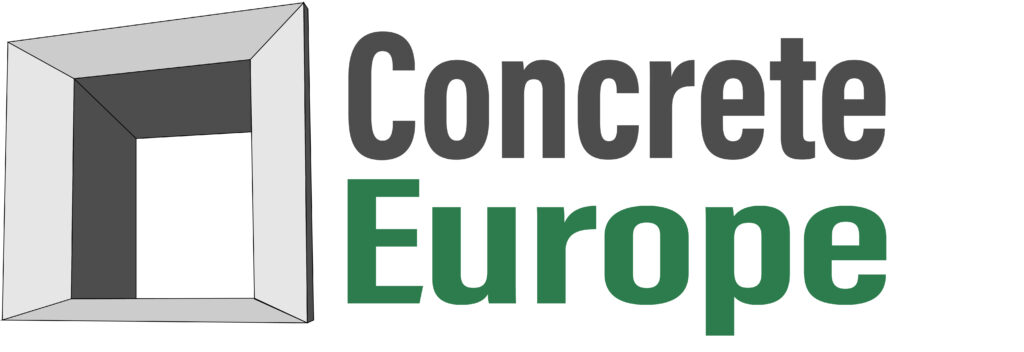
Concrete Europe is a European non-profit association of the European branch organisations representing the concrete industry: precast (BIBM) and ready-mixed concrete (ERMCO) and some of its constituents: cement (CEMBUREAU) and admixtures (EFCA).
Concrete Europe wishes to engage with stakeholders on the issue of sustainable construction, and in particular the barriers and solutions to harness its multiple benefits. It examines the economic, social and environmental implications of sustainable construction and the need for a balanced approach among these three pillars. It shows how the construction industry, including concrete, can help find solutions to Europe’s challenges. This means increasing understanding of the significant role of concrete in all three areas of sustainable construction.
The new entity (2023) is the successor to The European Concrete Platform and The Concrete Initiative. The membership is open to all EU associations active in the concrete value chain.
CONSTRUCTION PRODUCTS EUROPE (CPE)
Construction Products Europe (CPE) is the European Association that represents the interests of all construction products manufacturers throughout Europe.
Their mission is to strive to facilitate sustainable competitive growth of the European construction products industry by promoting efficient housing and infrastructure solutions through consensus and dialogue with the European Institutions and societal stakeholders.
BIBM is an Associate Member of CPE.
BFT INTERNATIONAL

BFT International is a leading trade media for manufacturers of precast concrete products and precast concrete elements worldwide as well as for construction companies that are specializing in the field of precast concrete.
BFT International magazine stands out for its expertise and modern approach. The quality and professionalism of this trade publication are widely acknowledged throughout the international prefabricated concrete components industry. The editorial team provides civil engineers, foremen, and managers in concrete plants and component plants with technical articles that deliver real added value.
BFT International is currently the official Media Partner of the BIBM Congress.
BUILDING CONGRESS FORUM

The BCF – Building Congress Forum GmbH offers professional planning and organization of events in the international congress business (such as BIBM Congress).
BCF means: Specialised knowledge in the whole value chain of building & expertise in organizing on the one hand as well as professional event management & strategic communication through established platforms on the other hand. By doing this, BCF unites two powers: Bauverlag BV GmbH and FBF Betondienst GmbH.
RISKADAPT
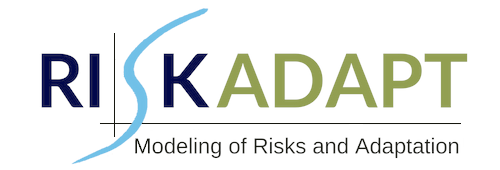
ASSET Level Modelling of RISKs In the Face oF Climate Induced Extreme Events and ADAPtation.
Project number: 101093939
Starting date → 01.01.2023
Project information → 36 months | 18 partners | EU contribution 2.533.536,00 €
Call (part) identifier →HORIZON-MISS-2021-CLIMA-02
Topic → HORIZON-MISS-2021-CLIMA-02-03
Type of action: HORIZON-RIA
Coordinator → RISA Sicherheitsanalysen GmbH (RISA)
EU Project Officer → Stefaan Bil
Exploit4InnoMat
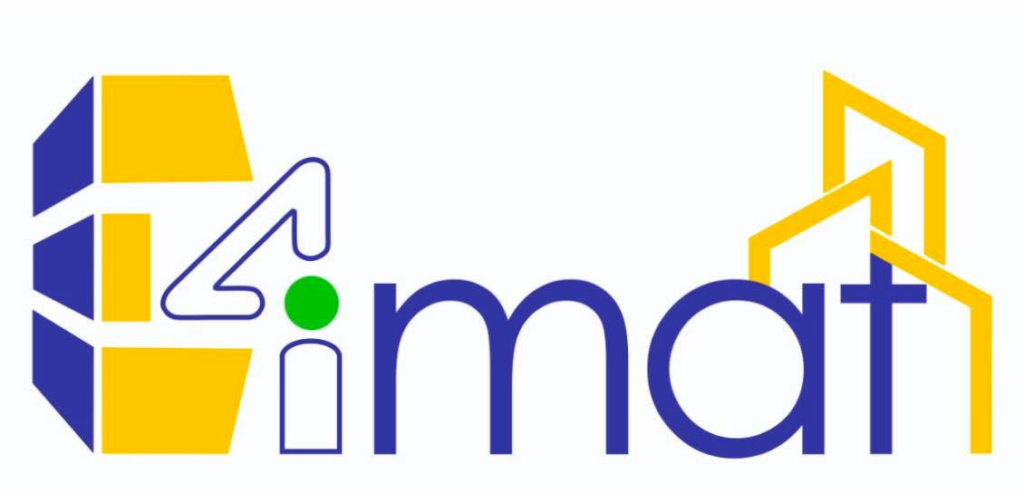
Exploit4InnoMat OITB will make available a high-end Open Innovation Testbed network for building envelopes including roofs and facades, enabling the replication of prototypes in different buildings taking into consideration the trade-offs between the three sustainability pillars, the life cycle stages as well as their impacts.
End-User Market Needs for low-cost, flexible, on demand material-based solutions, which will be assessed through an extensive partnership knowledge on materials characterization and modelling, monitoring and process control, environmental and assessment, regulatory and standardization, social acceptance and innovation management, realizing for nZEB solutions. In order to achieve this target a wide range of expertise has been brought to the OITB covering fields such as Open Innovation Testbeds for nano enabled cement, non cement premixes and ceramics, advanced coatings and glazing solutions loaded with aerogel, fibers, PCMs and other nanomaterials providing multifunctional properties; pilot lines for
nanodispersion, 3D printing and roboting spraying; as well as a network of four real scale living laboratories for nZEB technologies evaluation, will facilitate a realization tool for developing close to market technological solutions.
Additionally, a semi-automated tool combining BIM analysis, fast track modelling and simulation will make enable a digital tool for utilizing building blocks (structural, solar thermal and BIPV) in order to create a harmonized and aesthetically pleasing urban environment.
NEPSI / NEPSI IN ACTION

The NEPSI industry sector organisations and their counterpart trade union federations negotiated a multisectoral social dialogue Agreement between 1 September 2005 and 2 February 2006.
The European Commission supported the project, qualifying it as innovative: indeed, where European social dialogue agreements are usually sectoral or cross-industrial, this one is the first of its kind. An EC budget was granted to cover the costs of the negotiation, and the European trade associations which were not yet members of a social dialogue committee at EU level were considered as eligible to participate in this negotiation after scrutiny by the Commission.
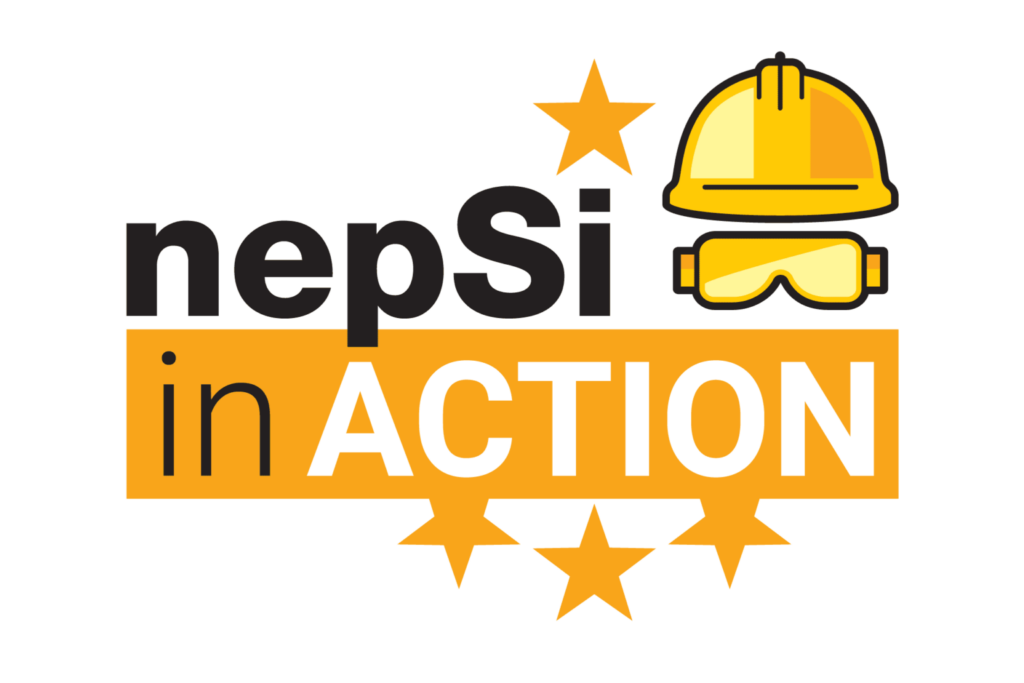
Two working groups were set up for the negotiation: one Steering Working Group to draft the Agreement and discuss political aspects, and one Technical Working Group (made up of producers and consumers of products and materials that contain crystalline silica) to draft the technical annexes of the Agreement, especially the Good Practice Guide. Experts from national health institutes – the HSE (UK), the Berufgenossenschaften (D) and the Instituto Nacional de Silicosis (ES) – supported the technical working group.
The final text was unanimously approved by the negotiating Parties and the negotiations ended on 25 April 2006 with the signature of the Agreement, in the presence of Commissioner Spidla.
INDUSTRY4EUROPE

Industry4Europe is a large and unprecedented coalition of organisations dedicated to campaigning for an ambitious EU industrial strategy.
With 149 member organisations from across the EU and spanning most sectors of the economy, Industry4Europe is helping to set the vision for the long-term future of the EU’s industrial and manufacturing strategy.
Industry4Europe has published several Joint Papers and Declarations on establishing an ambitious Industrial Strategy, which you can find on our publications page.
FIRE SAFE EUROPE

Fire Safe Europe (FSEU) was founded in 2011 with the goal of putting fire safety on the agenda of the European Union (EU).
Why? Because although the European Union (EU) has made many important strides to improve the sustainability and energy efficiency of buildings, those strides have sidestepped one of the oldest and most menacing threats of daily life: fire safety.
Fire Safety Europe promotes the highest standards for fire safety in buildings in Europe for regulations, policies, test methods and best practices.
Its role is to connect policy makers, firefighters, fire experts, NGOs and industries in view of keeping people safe from fire in every building they spend time in.
EUROPEAN MASONRY ALLIANCE (EMA)

The European Masonry Alliance (EMA) gathers the European masonry manufacturing industry (clay bricks and blocks, mortars, calcium silicate, autoclaved aerated concrete and concrete blocks) representatives to develop and deliver common messages on the economy, housing, jobs and growth across the whole of the European Union in the building sector.
The Alliance is led by: BIBM (the European Federation for Precast Concrete), EAACA (the European Autoclaved Aerated Concrete Association), ECSPA (the European Calcium Silicate Producers Association), EMO (the European Mortar Industry) and TBE (Tiles & Bricks Europe).
Construction 2050 Alliance
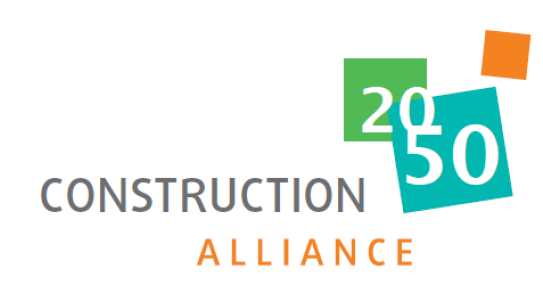
The EU Construction 2050 Alliance is an initiative that comes from Construction Products Europe (CPE), Committee of European Construction Equipment (CECE), European Builders Confederation (EBC) and European Construction Industry Federation (FIEC). The main objectives of the Alliance are to contribute to building the sustainable Europe of tomorrow and to raise the awareness among EU policymakers of the political importance of the construction sector. The first steps include rising visibility of common political priorities of the construction sector within the European Parliament by organizing events with MEPs, as well as organization of meetings of construction stakeholders to discuss political priorities, with the potential participation of representatives of the European Institutions.
Global Cement and Concrete Association (GCCA)
The Global Cement and Concrete Association (GCCA) is the global voice for cement and concrete – the most widely used man-made product on the planet. The GCCA and its members are committed to promoting the unique properties of concrete as a sustainable, durable and resilient building material.
The GCCA work programme is organised along three dimensions: sustainability, innovation and the positioning of concrete. Sustainable development of our industry is at the very core of the GCCA’s work and has five pillars: safety & health, climate change & energy, social responsibility, environment & nature and circular economy.
BIBM joined GCCA as Affiliate member in 2021.
The Sustainable, Long-term Investments and Competitive European Industry Intergroup of the European Parliament

BIBM is a Partner of the Intergroup.
On February 13, 2020, the “Sustainable, Long Term Investments & Competitive European Industry” Intergroup was officially established for the first time and launched at the constitutive meeting in the European Parliament in Strasbourg. The Intergroup will contribute to the implementation of a sustainable EU industrial strategy and the Green Deal and show the importance of the role of European industries in the energy transition.
The Bureau of the Intergroup is composed of three Co-chairs: Simona Bonafè (S&D), Maria da Graça Carvalho (EPP) and Dominique Riquet (Renew). A considerable number of MEPs decided to join the Intergroup as well. Find the full list of MEPs here.
PAST PROJECTS
SeRaMCo
Secondary Raw Materials for Concrete Precast Products

Project Summary
The construction sector is the most resource intensive industrial sector in the EU. It uses around 50% of the available primary raw materials, hence exhausting the natural resources, degrading environment and generating high costs to the business operators.
Although there is potential for the use of secondary raw materials from construction and demolition waste (CDW), this is far from becoming mainstream in Europe. For the time being, the sector uses only 4% of the recycled (CDW), although CDW represents the largest waste stream in the EU, accounting for 1/3 of the overall European waste.
To make the most out of the available resources, SeRaMCo aims to replace primary raw materials with the high-quality materials recycled from CDW, e.g. concrete, bricks, tiles and ceramics (CBTC), in production of the cement and concrete products for use in NWE. To attain this goal, the project will:
- analyse and improve sorting of CDW, as a precondition for successful recycling;
- develop and test new concrete mixes and technologies for the production of concrete precast products (CPPs) made from the recycled CBTC;
- establish a market niche for CPPs, leading to the economic advantages for the CPP producers and generating new jobs in the construction sector.
SeRaMCo’s expected outputs are cement and CPPs from up to 100% recycled aggregates, comparable to conventional products both in terms of costs and quality, and ready for commercialization in North-Western Europe (NWE) countries.
Prior to rolling-out across NWE and Europe as a whole, SeRaMCo will test its end-products in 3 pilot areas, namely City of Seraing (Belgium), City of Saarlouis (Germany) and Region of Moseille (France). Following the testing phase, previously developed business models, supporting the supply chain of the new market niche and establishing ecosystem with stakeholders active in the field, will be put in place.
Booklet: Final Conference of SeRaMCo - Precast Concrete in the Circular Economy
Cost Effective Recycling Of CDW In High Added Value Energy Efficient Prefabricated Concrete Components For Massive Retrofitting Of Our Built Environment
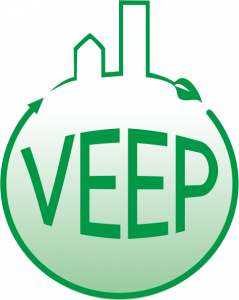
Growing interest in green buildings and circular economies is encouraging the consumption of high-grade secondary raw materials in the building sector. In particular there is clear consensus that compulsory material inventories of EoL buildings materials and subsequent selection of waste materials at source constitute key actions to guarantee high purity and quality C&DW recycled resources. In this context the main objective of VEEP is to develop and demonstrate a series of technological solutions for the massive retrofitting of our built environment, aiming at cost – effectively reducing building energy consumption.
It leads to higher resource efficiency in 2 novel multilayer Precast Concrete Elements (PCEs) through the combination of concrete and superinsulation material manufactured by using, at least, 75% (by weight) of C&DW recycled materials, as raw materials.
Technological development:
VEEP aims at developing the following advanced recycling technologies:
1) Advanced Drying Recovery (ADR) redesigned for modular construction and efficient onsite transportability and light weight (LW) concrete recycling;
2) Innovative mobile Heating-Air classification System (HAS) Pilot Plant (3ton/hour);
3) Combined ADR + HAS technology for simultaneous production of recycled concrete particles;
4) Ultra-fine wet grinding and health-safety refining technology.
Materials development:
VEEP aims to enable the incorporation of higher levels of C&DW inorganic recycled materials in new concrete. Today’s most sustainable buildings are the result of partial or total replacement of natural aggregates or clinker with recycled aggregates and cementitious supplementary materials. Less than 5% of recycled concrete aggregates are currently used in new concrete manufacturing. Still replacement levels are typically limited to 20% to 30% of the coarse fraction of the recycled NW concrete aggregate. The use of ADR technology can lead to higher quality coarse recycled concrete aggregates and higher comprehensive strength up to 100% of the virgin coarse aggregate (50% of the total concrete weight) can be replaced by coarse recycled concrete aggregate without detrimental effect.
REuse and REcycling of CDW materials and structures in energy efficient pREfabricated elements for building REfurbishment and construction

RE4 was a collaborative research project of 13 partner institutions from science and industry funded under the European Union’s Horizon 2020 research and innovation programme.
The main purpose of project was to develop a RE4 prefabricated energy-efficient building concept that can be easily assembled and disassembled for future reuse, containing up to 65% in weight of recycled materials from CDW (ranging from 50% for the medium replacement of the mineral fraction, up to 65%). The reusable structures is ranging from 15-20% for existing buildings to 80-90% for the RE4 prefabricated building concept.


